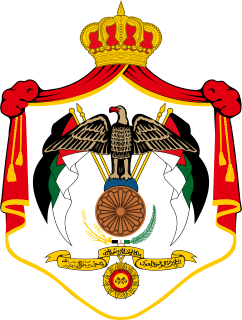
The Nationalist Party is a Christian democratic and conservative political party in Malta. It is one of two major contemporary political parties in Malta, along with the governing Labour Party. The Nationalist Party is currently in Opposition to the Labour Party.

The Democratic Party is a centre-left liberal political party in Hong Kong established in 1994. Chaired by legislator Wu Chi-wai, it is currently the third largest party in the Legislative Council of Hong Kong, having seven seats and 37 District Councillors. It is also the largest pro-democracy party in the legislature.

The 2004 Hong Kong Legislative Council election was held on 12 September 2004 for members of the Legislative Council of Hong Kong (LegCo). The election returned 30 members from directly elected geographical constituencies and 30 members from functional constituencies, of which 11 were unopposed.

The 1931 New Zealand general election was a nationwide vote to determine the shape of the New Zealand Parliament's 24th term. It resulted in the newly formed coalition between the United Party and the Reform Party remaining in office as the United-Reform coalition Government, although the opposition Labour Party made some minor gains despite tallying more votes than any other single party.

The National Assembly is bicameral with the lower house, the Chamber of Deputies, having 40 members elected in single-seat constituencies for a four-year term. The upper house, the Shura Council, has 40 members appointed by the King of Bahrain, with the stated aim of giving a voice to minority communities and technocratic experts within the legislative process. Supporters of the system refer to long established democracies the United Kingdom and Canada operating with this bicameralism with an appointed upper chamber and an elected lower chamber. Opponents of this system point out that unlike the bicameral systems in the UK and Canada, the Bahraini system gives the unelected upper house equal or more legislative power than the elected lower house, allowing the King to control all legislation. Opponents also point out that the current system was imposed unilaterally by the King, violating the 1973 Constitution and a 2001 signed agreement with the Bahraini opposition.

Elections in Benin take place within the framework of a multi-party democracy and a presidential system. Both the President and the National Assembly are directly elected by voters, with elections organised by the Autonomous National Electoral Commission (CENA).

Elections in Guinea-Bissau take place within the framework of a multi-party democracy and a semi-presidential system. Both the President and the National People's Assembly are directly elected by voters.

Elections in Jordan are for the lower house, known as the House of Representatives, of the bicameral parliament of Jordan, as well as for local elections. They take place within a political system where the King has extensive legislative and executive powers, retaining ultimate political control. The Prime Minister is selected by the King, the PM is then free to choose his own Cabinet. The parliament has quotas: three seats for Circassians and Chechens, nine for Christians and fifteen for women. The electoral system favours rural tribes and those of East Bank origin over urban areas that are primarily inhabited by those of Palestinian descent.

Elections in Kuwait are held for both the National Assembly and for the Municipality. Kuwait's constitution calls for elections to the unicameral National Assembly at a maximum interval of four years. Elections are held earlier if the Constitutional Court or Emir dissolve the parliament.

Parliamentary elections were held in Kyrgyzstan on 27 February and 13 March 2005. The belief that the elections had been rigged by the government led to widespread protests, culminating in the Tulip Revolution on 24 March in which President Askar Akayev was overthrown.

Al-Wefaq National Islamic Society, or Al-Wefaq for short, is a Bahraini political party. Although from 2006 to 2011 it was by far the single largest party in the Bahraini legislature, with 18 representatives in the 40-member Bahraini parliament, it was often outvoted by coalition blocs of opposition Sunni parties and independent MPs reflecting gerrymandering of electoral districts. On 27 February 2011, the 18 Al-Wefaq members of parliament submitted letters of resignation to protest regime violence against pro-reform Bahraini protestors.

Civic Party is a pro-democracy liberal political party in Hong Kong. It was established in 29 March 2006 by a group of barristers. Led by Alvin Yeung and chaired by Alan Leong, the party is the fourth largest party in the Legislative Council of Hong Kong, commanding five seats. It also has 12 seats in the District Councils.

The 2008 Hong Kong Legislative Council election was held on 7 September 2008 for the 4th Legislative Council since the establishment of the Hong Kong Special Administrative Region. There were 60 seats in the 4th Legislative Council, with 30 members elected by geographical constituencies through direct elections, and 30 members by functional constituencies. Candidates for 14 functional constituency seats were unopposed.

The 2000 Hong Kong Legislative Council election was held on 10 September 2000 for members of the 2nd Legislative Council (LegCo) of the Hong Kong Special Administrative Region (HKSAR). The election returned 24 members from directly elected geographical constituencies, 6 seats from the Election Committee constituency and 30 members from functional constituencies, of which 9 uncontested.

The fourth legislative council election to Madras Presidency after the establishment of dyarchical system of government by the Government of India Act, 1919 in September 1930. Justice party won the election and P. Munuswamy Naidu became the first Chief Minister. The main opposition party - Swaraj Party did not contest the elections due to its participation in the Civil Disobedience Movement.

The 1991 Hong Kong Legislative Council election was held for members of the Legislative Council of Hong Kong (LegCo). The election of the members of functional constituencies was held on 12 September 1991 and the election of geographical constituency seats was held on 15 September respectively. It was the first ever direct election of the Legislative Council in Hong Kong history. There were 18 members from directly elected Geographical Constituencies, 21 members from Functional Constituencies, 17 members appointed by the Governor, and 3 official members.

Legislative Council elections were held in Burma on 21 November 1922, the first in the country's history.

Elections to the Legislative Council were held in Burma on 17 November 1925. Under the terms of the dyarchy constitution, the Legislative Council of Burma was advisory to the British colonial governor, and had some direct authority over education, local government, public health, agriculture and forests. The Nationalist Party received the most votes, but was unable to form a government as the British authorities favoured the Independent Party, who formed a government led by Joseph Maung Gyi.
Elections to the Legislative Council were held in the Colony of Natal in September 1892. The initial result was a victory for the anti-responsible government party, which won 14 of the 24 seats. However, this was later overturned as four anti-responsible government members lost their seats after their election was annulled, and the by-elections were won by pro-responsible government candidates.

The 2015 Hong Kong District Council elections were held on 22 November 2015. Elections were held to all 18 District Councils with returning 431 members from directly elected constituencies after all appointed seats had been abolished.


















